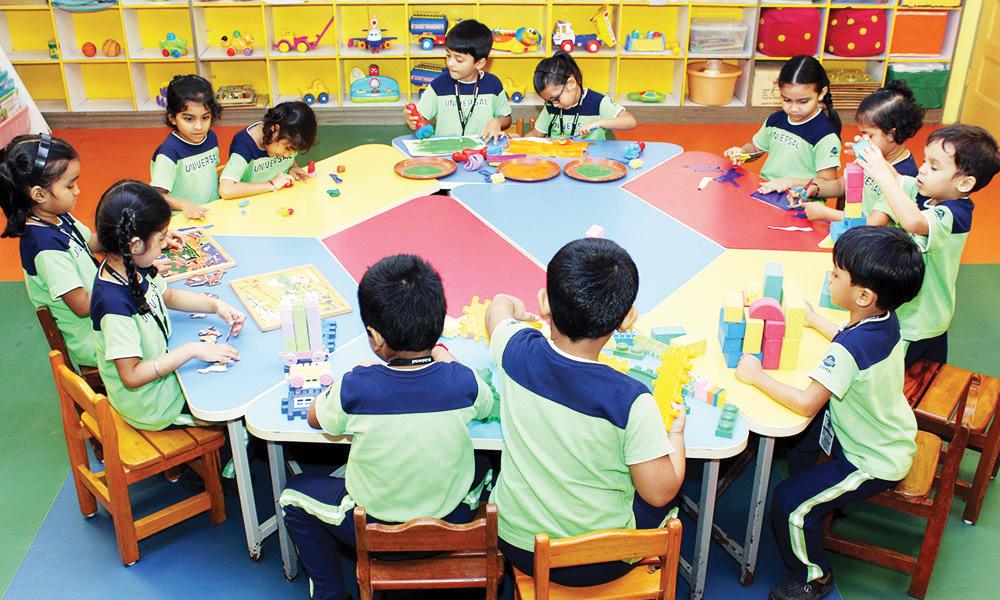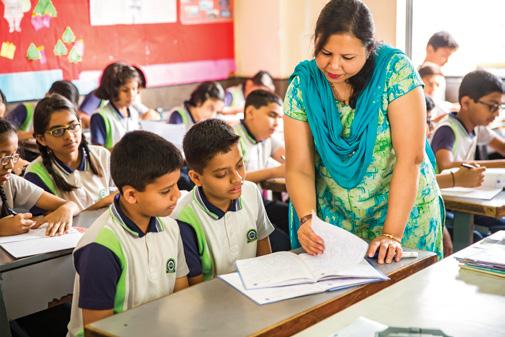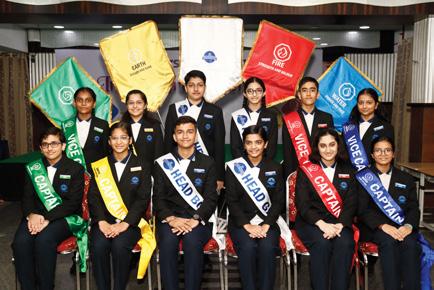
2 minute read
Pre-primary: Learning by the play
The early childhood curriculum is designed to meet students' needs, interests and abilities to foster their holistic development. Our curriculum is inspired by Dr Howard Garner’s Theory of Multiple Intelligences, while our student-centric pedagogy is inspired by Reggio- Emilia approach.
Our pedagogy: Reggio- Emilia approach
Each child is considered infinitely capable, creative and intelligent. The teacher's job is to support these qualities and challenge students in appropriate ways.

i. Students learn, express and develop critical thinking skills through projects, group works, field trips, resource books and audio-visuals.
ii. Students learn through experiences of touching, moving, listening, and observing.
iii.
Students have some control over the direction of their learning.
Developing the whole child, not just academic aptitude
Our curriculum is based on Howard Gardner’s Multiple Intelligence Theory. Going with the traditional belief of IQ as the best predictor of intellect, schools focus on language, numerical and spatial abilities. Instead, based on evidence from disparate sources, the MI theory claims that humans have several relatively discrete intellectual capacities. We expose young students to eight independent intelligence for holistic growth.
Linguistic Intelligence
A phonic-based language and rich environment promote listening, speaking, reading and writing, plus vocabulary enrichment.
Interpersonal Intelligence
Group work with both peers and adults builds confidence and positive relationships.
Intrapersonal Intelligence
Self-awareness grows through prayer and reflection.
Bodily Kinesthetic Intelligence
Sand play, water play, dance, drama and yoga promote the development of fine and gross motor skills.
Logical - Mathematical Intelligence
MULTIPLE
INTELLIGENCES AT UNIVERSAL
Naturalistic Intelligence
A love for one's natural and cultural environment blossoms through interactions with the real world.
Visual Spatial Intelligence
Scribbling, drawing, colouring, painting, origami and other craftwork hone the child's aesthetic sense.
Musical Intelligence
Songs and poetry teach rhythm, pitch and balance.
Primary: Instilling joy in learning
Our primary curriculum is well aligned with the recommendations of ICSE and incorporates all elements of academic and extra-curricular interests to create a passion for learning. It caters to the challenging requirements of contemporary and future educational needs.

Building concepts Learning languages
Students build fundamental concepts in Language, Math, Science and Computer Science.
Students learn Hindi, Marathi and English as a part of the language program. Foreign languages are also introduced from Grade 4 onwards.
Coding program
In Grades 1 and 2, students learn SCRATCH Junior and move ahead with SCRATCH from Grade 3 onwards.





Secondary: Connecting with the real world
After mastering fundamental concepts in the primary school, students go through a more rigorous academic program and learn from real-world situations.


Applying concepts Understanding the world Developing 21st-century skills
Students learn to apply concepts in real-world situations through Project-based learning.


Students learn to discover and respect the world and its diversity through exchanges and excursions.
Students engage with global organisations such as MUN, IDF, Habitat for Humanity and many more to develop leadership and teamwork skills.
Project Based Learning Chemistry


Debate Competition








